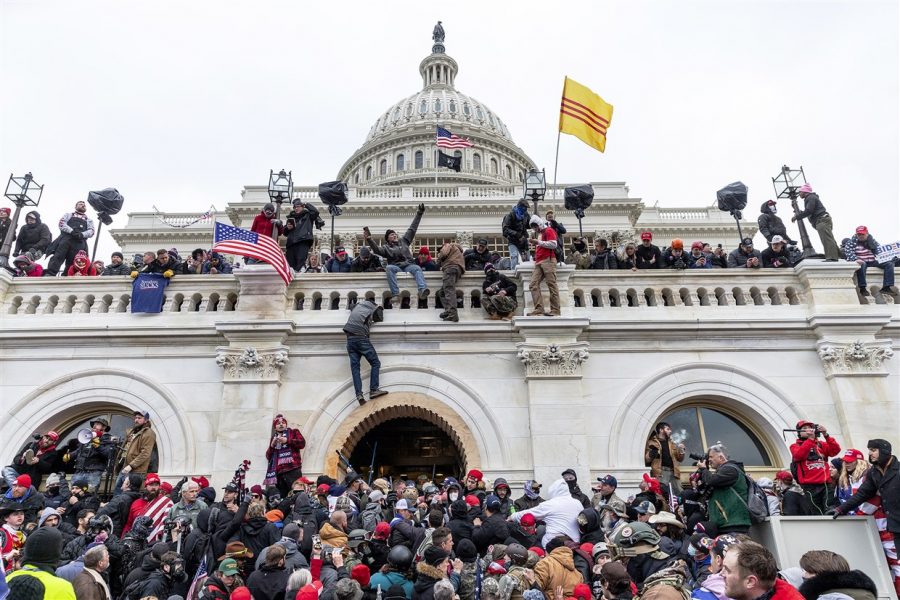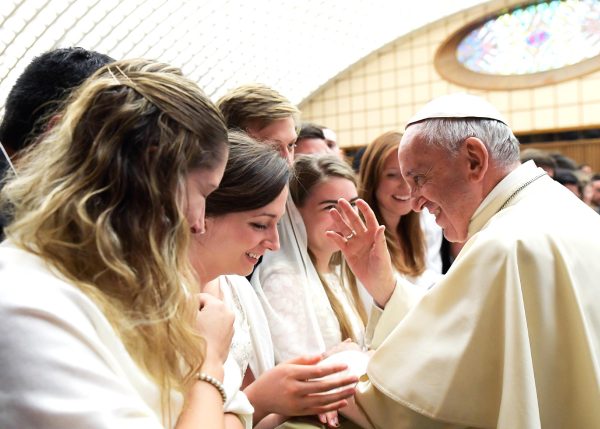Commentary on the Capitol Siege
The rioters who stormed the Capitol are not true Americans. Regardless of one’s politics, everyone should condemn the markedly un-American mob that laid siege to the Capitol on January 6 that Jacob Dietch (II) accurately described as “a national tragedy.”
Throughout American history, there have certainly been events that may seem comparable to the storming of the Capitol on the surface, but January 6 was unique. American citizens carried out an attack against the very country that represents them. Furthermore, former President Trump coddled the group of his supporters that broke through the bastion of American democracy, as he reminded them that they were “special” and had his “love.”
While those who carried out the disgraceful events on January 6 may have been born on American soil, they are not Americans. “American” connotes something beyond citizenship; it brings with it a promise to uphold American ideals and American institutions, to protect America, to honor the electoral system and to respect the country and what it stands for. The insurrectionists of January 6 are not “American” in the spirit of the word.
Those among the ranks of true Americans include the Republicans with the backbone to stand against the Capitol mob. House Minority Leader Kevin McCarthy called on President Trump to “accept his share of responsibility,” and Utah Senator Mitt Romney referred to those objecting to the certification of President Biden’s electoral votes after the siege as “complicit in an unprecedented attack against our democracy.” Members of Trump’s cabinet who resigned, Representative McCarthy, Senator Romney and others — particularly Republicans — who condemned the President’s rhetoric and the attack it spurred deserve credit for having some sense of duty to the country. Some may argue that this is too little, too late; however, this is merely cynical criticism of people who did something good in condemning the insurrection.
Anyone who did not use the harshest of language in denouncing the storming of the Capitol has no excuse. This event indicates a larger threat to the American republic that existed before Trump and will outlive him, too.
Senior Class President Gian Martinez (I) describes the events of January 6 as the “culmination of the gross amount of undemocratic rhetoric that Donald Trump used.” Former President Trump certainly has a pattern of reprehensible and “undemocratic” rhetoric — namely his cries to “stop the steal,” referencing President Biden’s victory in November.
Trump’s loyal populist following demonstrates his ability to use rhetoric to weaponize the anger and fear within many Americans. As America advances into the twenty-first century, many feel left behind by the shifting of the economy, ever-growing globalization and loss of traditional stalwarts of employment in many places more rural than the urban setting and economy that Boston Latin School students are accustomed to.
This feeling of abandonment only grew as it waited for an outlet, and the outlet came in the form of a 6’3’’ New York populist with a trademark blonde combover and heavy tan. This sentiment was so powerful that it propelled Donald J. Trump to the office of the leader of the free world. He gave many Americans a feeling of political efficacy while making an enemy of the “deep state” and political institutions, enabling thousands of Trump supporters with the confidence to attack the Capitol, a physical representation of the democracy that America holds dear.
To further complicate the situation, the police’s response to the incident at the Capitol and lack of preparedness has raised concern. Vishnu Eskew (III) says it was an “example of the injustices and bias present in America.” While the security readiness was poor, the extent to which the breach exposes a larger problem remains to be revealed in the results of ongoing investigations.
With the insurrection of January 6 in rear-view, America has a new president who, if nothing else, has a track record of less divisive rhetoric than his predecessor. Although this is a promising start, it is on the American people to come together and condemn attacks on our democracy as they manifest. Only then will there be hope for a better America.







